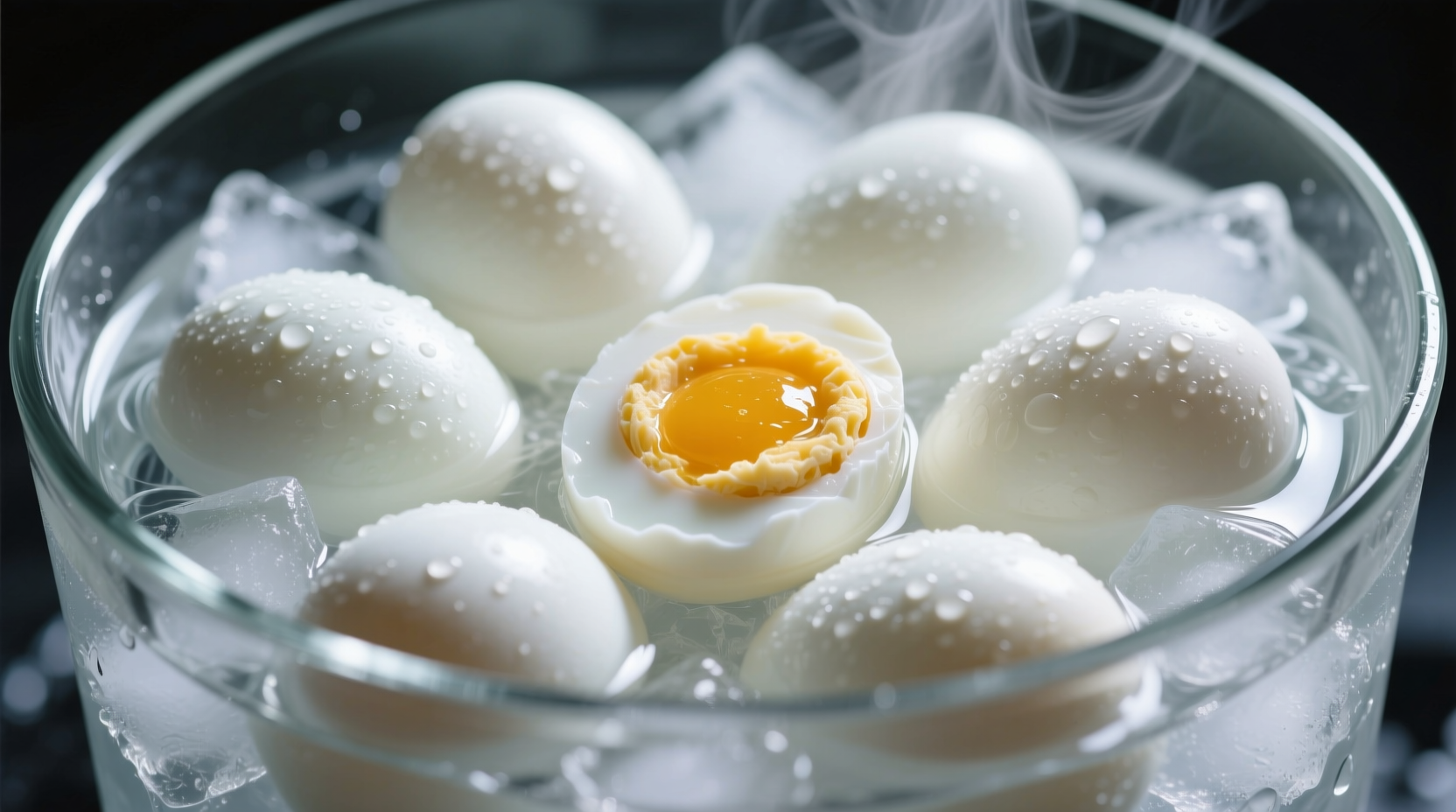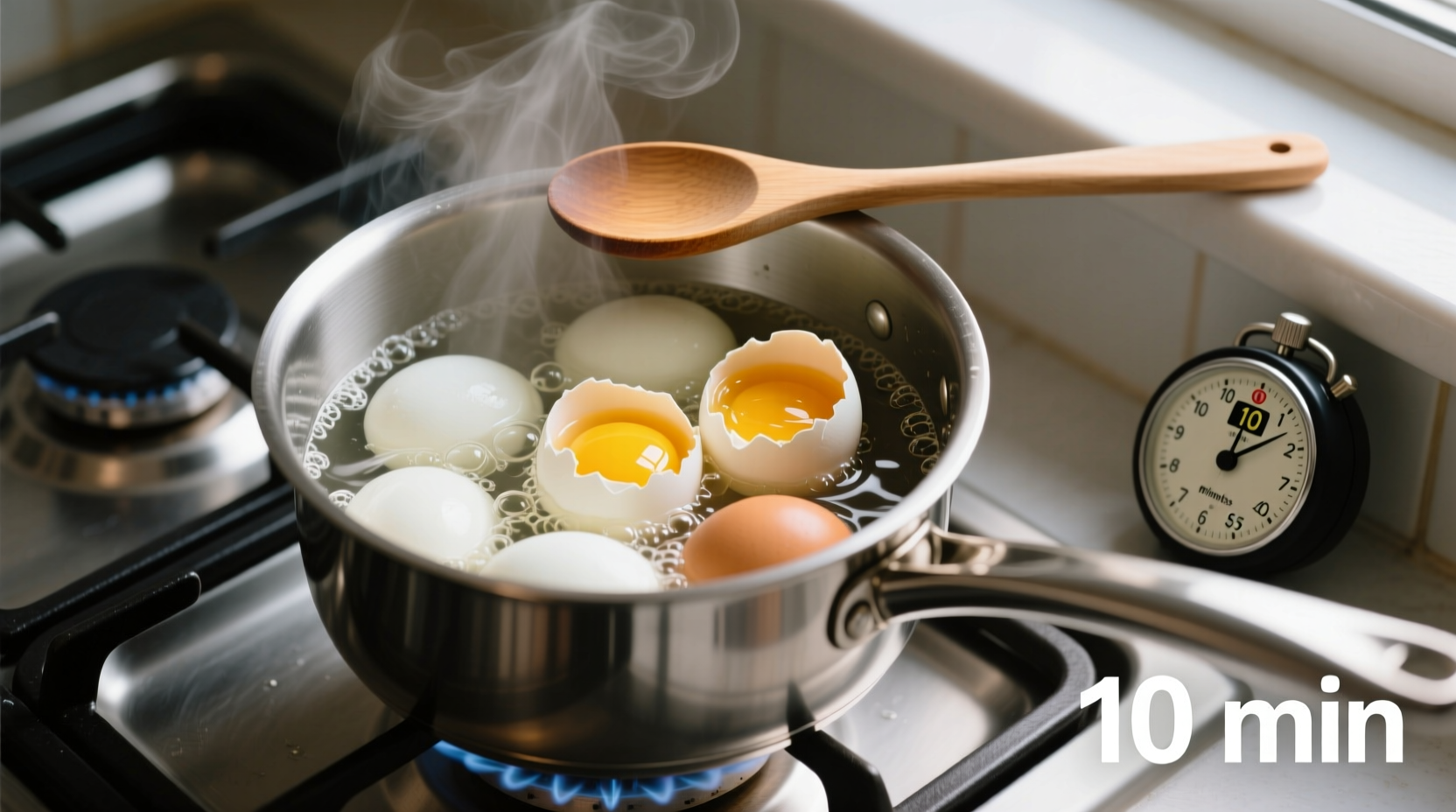The Ultimate Guide to Perfect Hard Boiled Eggs on Stove
Getting hard boiled eggs right seems simple, but many home cooks struggle with cracked shells, rubbery whites, or that dreaded green ring around the yolk. The perfect hard boiled egg has tender whites and a bright yellow, creamy yolk without any gray discoloration. After testing dozens of methods, we've perfected the timing and technique that works consistently for home kitchens.
Why Timing Matters for Hard Boiled Eggs
Incorrect timing leads to common problems:
- Undercooked (8 minutes or less): Runny yolks when you want firm
- Perfectly cooked (10-12 minutes): Creamy yellow yolk, tender white
- Overcooked (14+ minutes): Green-gray yolk ring, rubbery texture
According to the American Egg Board, the ideal hard boiled egg requires precise heat control. The proteins in egg whites begin setting at 180°F (82°C), while yolks set between 144-158°F (62-70°C). Exceeding these temperatures causes sulfur compounds to react with iron in the yolk, creating that unappetizing green ring.
Step-by-Step Perfect Hard Boiled Eggs
Preparation Phase: Setting Up for Success
Before you even turn on the stove, proper preparation prevents common issues:
- Use room temperature eggs (take from fridge 30 minutes before cooking)
- Select older eggs (1-2 weeks old) which peel more easily than fresh eggs
- Add 1 teaspoon of vinegar to the water to help prevent cracking
- Place eggs in single layer at bottom of saucepan
Cooking Phase: The Critical Timing Window
| Egg Size | Cold Start Time | Simmer Time | Total Time | Yolk Result |
|---|---|---|---|---|
| Medium | 10-12 minutes | 9-10 minutes | 19-22 minutes | Creamy center |
| Large | 10-12 minutes | 10-12 minutes | 20-24 minutes | Ideal firmness |
| Extra Large | 10-12 minutes | 12-14 minutes | 22-26 minutes | Fully set |
Follow these exact steps:
- Place eggs in saucepan in single layer
- Add cold water to cover eggs by 1 inch
- Place over medium-high heat until water reaches gentle boil (not rolling boil)
- As soon as water boils, remove pan from heat
- Cover pan with lid and let sit for precise time (10-12 minutes for large eggs)
- Transfer eggs immediately to ice water bath for 15 minutes

Cooling Phase: The Often-Missed Step
Immediate cooling stops the cooking process and creates the perfect texture. The USDA Food Safety and Inspection Service emphasizes that proper cooling prevents bacterial growth. Submerge eggs in ice water for at least 15 minutes - this causes the egg to contract slightly, creating space between the shell and membrane for easier peeling.
Altitude Adjustments: Critical Context Factor
Water boils at lower temperatures at higher elevations, requiring longer cooking times. This context boundary significantly impacts results:
- Sea level to 3,000 feet: Standard 10-12 minute timing
- 3,000-6,000 feet: Add 1-3 minutes to simmer time
- 6,000+ feet: Add 3-5 minutes to simmer time
The Colorado State University Extension confirms that for every 1,000 feet above sea level, cooking time must increase by approximately 5% to achieve the same results as at sea level due to lower boiling points.
Troubleshooting Common Problems
Cracked shells during cooking: Add 1 teaspoon vinegar to water before heating. The acid helps coagulate proteins faster if a crack occurs.
Difficulty peeling: Use eggs that are 7-10 days old rather than very fresh eggs. The air cell develops more fully, creating better separation between shell and membrane.
Green ring around yolk: This indicates overcooking. Reduce simmer time by 1-2 minutes next time and ensure immediate transfer to ice water.
Storage and Usage Tips
Properly stored hard boiled eggs maintain quality for up to one week. The FDA recommends:
- Store in refrigerator at 40°F (4°C) or below
- Keep in original carton or airtight container
- Consume within 7 days for best quality and safety
- Peel only when ready to eat to maintain freshness
For meal prep enthusiasts, hard boiled eggs provide excellent portable protein. One large hard boiled egg contains 6 grams of high-quality protein and essential nutrients including choline, selenium, and vitamin D.
Advanced Technique: The Perfect Yolk Every Time
For culinary precision, consider these professional chef techniques:
- For deviled eggs: Cook 12 minutes for firm yolks that hold shape
- For egg salad: Cook 10 minutes for slightly softer yolks that blend smoothly
- For pickled eggs: Cook 9 minutes for yolks that absorb flavors better
Temperature monitoring provides the most reliable results. Insert an instant-read thermometer into the center of an egg after cooling - perfect hard boiled eggs register between 160-170°F (71-77°C).











 浙公网安备
33010002000092号
浙公网安备
33010002000092号 浙B2-20120091-4
浙B2-20120091-4